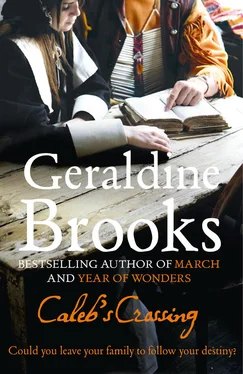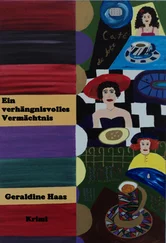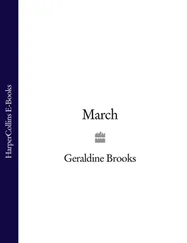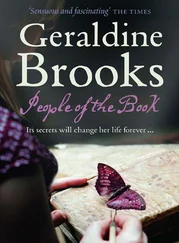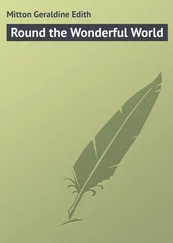Break God’s laws and suffer ye his wrath. Well, and so I do. The Lord lays his hand sore upon me, as I bend under the toil I now have— mother’s and mine, both. The tasks stretch out from the gray slough before dawn to the guttered taper of night. At fifteen, I have taken up the burdens of a woman, and have come to feel I am one. Furthermore, I am glad of it. For I now no longer have the time to fall into such sins as I committed as a girl, when hours that were my own to spend spread before me like a gift. Those hot, salt-scoured afternoons when the shore curved away in its long glistening arc toward the distant bluffs. The leaf-dappled, loamy mornings in the cool bottoms, where I picked the sky-colored berries and felt each one burst, sweet and juicy, in my mouth. I made this island mine, mile by mile, from the soft, oozing clay of the rainbow cliffs to the rough chill of the granite boulders that rise abruptly in the fields, thwarting the plough, shading the sheep. I love the fogs that wreathe us all in milky veils, and the winds that moan and keen in the chimney piece at night. Even when the wrack line is crusted with salty ice and the ways through the woods crunch under my clogs, I drink the cold air in the low blue gleam that sparkles on the snow. Every inlet and outcrop of this place, I love. We are taught early here to see Nature as a foe to be subdued. But I came, by stages, to worship it. You could say that for me, this island and her bounties became the first of my false gods, the original sin that begot so much idolatry.
Now, here, in the scant days I have left before Caleb comes to us, I have decided to set down my spiritual diary, and give an accounting for those months when my heart sat so loose from God. I have gathered what scraps of paper I could scavenge from my brother’s store, and I intend to use whatever moments I can eke out before each day’s weariness claims me. My hand is unlovely, since father did not school me in writing, but as this relation is for my own eyes, it makes no mind. Since I cannot say, yet, whether I will find the courage to stand in meeting some day and deliver an accounting of myself, this will have to do. In my affliction I have besought the Lord but I have had no sign that I am saved. When I look at my hands and wrists, marred by the marks of small burns from cook pots and flying embers, every red weal or white pucker brings to my mind’s eye that eternal fire, and the writhing masses of the damned, among whom I must expect to spend eternity.
God alone ordains the damned and the saved and naught that I set down on these pages can change that. But since Caleb is to come here, trailing about him the smoke of those heathen fires and the scent of those wild, vision-filled hours, I need to be clear in my own mind and honest in my heart where I stand with regard to such matters, so that I can truly put them from me. I must do this for his sake, as well as for my own. I know that father sets great store in Caleb. He sees him, more than any other here, as a great hope to lead his people. Certainly Caleb seems to want this also; no one toils at his book more diligently; no one has gathered such a rich harvest of knowledge in the scant seasons he has had to study these things. But I also know this to be true: Caleb’s soul is stretched like the rope in a tug o’ war, between my father and his own uncle, the pawaaw. Just as my father has his hopes, so too does that sorcerer. Caleb will lead his people, I am sure of it. But in which direction? Of that, I am not in the least bit certain.
Chapter II
Once, on a stormy night two winters since, when we had toiled through the rain and wind to pull out the boats and lash them safe, we came back to the house with water lacquered to our cloaks and frozen strands of hair clinking each against each as we moved. Our hands were numb as we crammed daub into the cracks and chinks of the house and battled to repair the oil paper that had torn loose on the windows. (We had no glass, then.) Later, as I sat by the fire, the ice melting from my person, the water pooling about my feet, Makepeace asked father the question that was even then forming in my own mind: why was it that grandfather had sought the patent to this island? Why put seven miles of confounding currents between himself and the other English, at a time when there was land and to spare on the mainland for any who wanted to hive out a new settlement?
Father said that grandfather, as a young man, had served others, putting his skills to work as factor for a wealthy nobleman who rewarded him by laying baseless charges against him. While grandfather was able to exonerate himself, the experience left him bitter, and he resolved to answer to others no more. That included John Winthrop, the governor of the Massachusetts Bay colony, a man of estimable parts, but a man increasingly willing to wield cruel punishments against those whose ideas did not accord with his own. More than one man had had his ears cut off or his nose slashed open; a dissident woman, pregnant and trailing a dozen children, had been expelled into the wilderness. And those were his Christian brothers and sisters. What he had allowed in regard to the Pequot was, my father said, not fit for our hearing.
“Your grandfather felt he could do better. So he bought these patents, which were outside the purview of Winthrop’s governance, and gathered several like-minded men who were prepared to accept the light hand of his direction. Me, he sent— in 1642— to make the first crossing. It is a matter of pride to me, son, that your grandfather insisted, even though he had paid the English authorities for the patents, on paying the sonquem of this place also. Every hut and house we have built here is on land willingly sold to us through negotiations that I conducted honorably. You will hear, perhaps, that not all the sonquem’s followers agreed with their chief in this matter, and some now say that he himself did not fully understand that we meant to keep the land from them forever. Be that as it may, what’s done is done and it was done lawfully.”
I thought, but did not say, that grandfather could hardly have expected the fine points of English property law to count for much to some three thousand people whose reputation, prior to our landing, had been ferocious. If there was pride to be taken in the matter, it could only be pride in the canniness of grandfather’s plan, and of father’s courage and tact in executing it. Father had been but nineteen years old when he came here. Perhaps his youth and gentle temper had persuaded the sonquem that there was no harm in the “Coatmen,” as they called us. And what harm could there be to them, from just a score of families, setting down cheek by jowl along a little edge of harborfront, while their own bands ranged hundreds strong across the island wheresoever they would?
Father picked up the thread of his thought as if it were a tangled skein that he worried at. “We have been good neighbors, yes; I believe so,” he said. “And why should we not? There is no reason to be otherwise, no matter what slanders the Alden family and their faction concoct. ‘You may disturb and vex the devil, but you’ll make no Christians there’— that’s what Giles Alden said to me, when first I set out to preach at the wetus. And how wrong he is proven! For several years I drank the dust of those huts, helping in whatever practical thing I could do for them, happy to win the ears of even one or two for a few words about Christ. And now, at last, I begin to distill in their minds the pure liquor of the gospel. To take a people who were traveling apace the broadway to hell, and to be able to turn them, and set their face to God. . . . It is what we must strive for. They are an admirable people, in many ways, if you trouble to know them.”
How I could have astonished him, and my brother too, even then, had I opened my mouth and ventured to say, in Wompaontoaonk, that I had troubled to know them; that I knew them, in some particulars, better than father, who was their missionary and their minister. But as I have set down here, I had learned early the value of silence, and I did not lightly give away the state of myself. So I got up from the fire then, and made myself busy, wetting yeast and flour for a sponge to use in the next day’s bread.
Читать дальше
